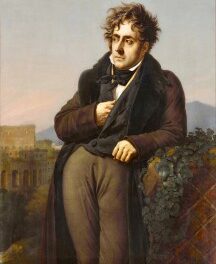We support our Publishers and Content Creators. You can view this story on their website by CLICKING HERE.
I think a niche market remains for Catholic fiction, but it is more likely to be fiction that confirms and consolidates the Catholic worldview: stories with Catholic heroes who challenge and subvert the secular order and suffer for it.
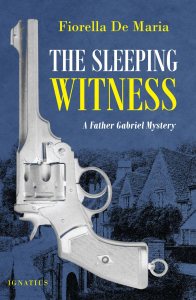 American murder mysteries invariably involve a grubby gumshoe working out of a beat-up office with a revolver in the shoulder holster and a bottle in the bottom desk drawer. The sleazy PI usually has a girl problem, a sorry backstory, and an uneasy relationship with the local cops. This is the world of film noir: gritty, grubby, and in the gutter.
American murder mysteries invariably involve a grubby gumshoe working out of a beat-up office with a revolver in the shoulder holster and a bottle in the bottom desk drawer. The sleazy PI usually has a girl problem, a sorry backstory, and an uneasy relationship with the local cops. This is the world of film noir: gritty, grubby, and in the gutter.
How different the world of English murder mysteries! Here the murder takes place not in lowbrow LA but in a charming village complete with rose-covered, thatched cottages… the mellow golden stone church tower in the background, the Goose and Garter pub, cricket on the village green, Miss Marple and a glass of dry sherry darling. If not Miss Marple, then the suave Hercule Poirot, the sharp-witted Sherlock Holmes, or the whimsical Lord Peter Wimsey.
Having lived for twenty-five years in the damp lands, I find it difficult to choose between the gritty underworld of the American sleuth or the glittering world of the English investigator.
A recent foray into the subgenre of English detective fiction brought me to Fiorella De Maria’s Father Gabriel Mysteries. Father Gabriel is an English Benedictine monk, and the stories are set in rural Wiltshire just after the second World War.
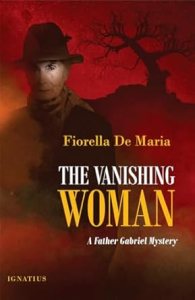 De Maria not only adds her name to the roster of English mystery writers, but her hero joins the club of famous clerical sleuths—which opens another sub genre: the clerical crime solver. According to Philip Grosset, who’s created a compendium of clerical detectives, there are nearly four hundred clergy-detectives in English literature.
De Maria not only adds her name to the roster of English mystery writers, but her hero joins the club of famous clerical sleuths—which opens another sub genre: the clerical crime solver. According to Philip Grosset, who’s created a compendium of clerical detectives, there are nearly four hundred clergy-detectives in English literature.
First on the list must be Chesterton’s Father Brown, but other Catholic priestly PIs are Andrew Greeley’s Father Blackie Ryan and Ralph McInerney’s Father Dowling. The Anglicans can boast Rev. Sidney Chambers, vicar of Grantchester (created by the son of former Archbishop of Canterbury Robert Runcie) and the female Episcopalian vicar Clare Fergusson—the creation of Julia Spencer Fleming. De Maria’s Father Gabriel is a Benedictine monk, so he is grouped not only with the priests, but also the monastic sleuth—Ellis Peter’s Brother Cadfael.
So what do I make of the Father Gabriel mysteries? De Maria is a fluent and skilled writer. She balances plot with descriptions and character viewpoints without burdening us with long purple passages and boring introspection. There is enough description to evoke a nostalgia for 1950s England without lapsing into a travelogue.
De Maria devises the mystery story with skill and keeps us guessing until the last chapter as she should, but somehow there is something missing. It was difficult for me to pin down my impatience with the three stories I read. “I should be enjoying these more,” I told myself. “I lived in Wiltshire. I love England and the English monasteries. I was an oblate at Downside, so I’m familiar with the world of monasticism, English Catholicism, and culture. Why am I not gobbling up these stories rather than plodding through them?”
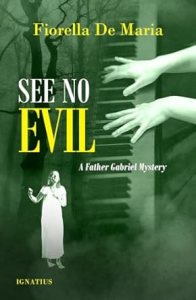 In the end I think it is Father Gabriel’s fault. One needs to admire and be delighted by the detective, and I found myself disliking Father Gabriel. He was too polite, too timid, too conventional, too worried what other people think. I certainly understand how intimidating the English middle- and upper-classes can be, but Father Gabriel tiptoes around them—being annoyed by their smug snobbery and precious manners, but always submitting to them. As a Catholic priest in an Anglican world, I wanted him to be more subversive—not in an obnoxious way, but in a witty and sly way.
In the end I think it is Father Gabriel’s fault. One needs to admire and be delighted by the detective, and I found myself disliking Father Gabriel. He was too polite, too timid, too conventional, too worried what other people think. I certainly understand how intimidating the English middle- and upper-classes can be, but Father Gabriel tiptoes around them—being annoyed by their smug snobbery and precious manners, but always submitting to them. As a Catholic priest in an Anglican world, I wanted him to be more subversive—not in an obnoxious way, but in a witty and sly way.
As a man, I also felt that de Maria (as a female) did not completely succeed in getting inside Father Gabriel’s masculinity. Was his timidity too feminine? Did I misconstrue his monastic meekness and self-effacing character as weakness and effeminacy? Is it my fault?
I did not want Father Rambo or Father Gunslinger. Perhaps I simply enjoy a certain amount of eccentricity in my detectives. Where was Father Gabriel’s horrible hat, his winsome wit, his amusing mustache, his funny foibles, or even some beguiling bumbling like Colombo?
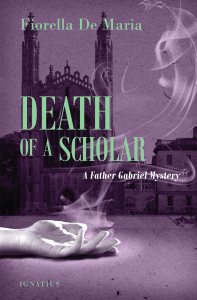 I must set aside my grumbles. Fiorella de Maria is a fine writer, and Ignatius Press has done well in publishing her mystery stories. After a recent visit to the HQ of Ignatius Press, I learned that “Catholic fiction doesn’t sell well,” and publishers are coming to the conclusion that “Catholics don’t read fiction”. I don’t think this is a comment on Catholics so much as it is on the general state of fiction writing, the media, and the impact of the new technology on publishing these days. People are not so content to curl up with a good book as they once were. I think when they want a fictional escape, they are more likely to curl up with a good TV series or film.
I must set aside my grumbles. Fiorella de Maria is a fine writer, and Ignatius Press has done well in publishing her mystery stories. After a recent visit to the HQ of Ignatius Press, I learned that “Catholic fiction doesn’t sell well,” and publishers are coming to the conclusion that “Catholics don’t read fiction”. I don’t think this is a comment on Catholics so much as it is on the general state of fiction writing, the media, and the impact of the new technology on publishing these days. People are not so content to curl up with a good book as they once were. I think when they want a fictional escape, they are more likely to curl up with a good TV series or film.
Nevertheless, I think a niche market remains for Catholic fiction, but it is more likely to be fiction that confirms and consolidates the Catholic worldview: stories with Catholic heroes who challenge and subvert the secular order and suffer for it.
The Imaginative Conservative applies the principle of appreciation to the discussion of culture and politics—we approach dialogue with magnanimity rather than with mere civility. Will you help us remain a refreshing oasis in the increasingly contentious arena of modern discourse? Please consider donating now.
The featured image is courtesy of Pixabay.
Share This Story, Choose Your Platform!
Go to Top

 Conservative
Conservative  Search
Search Trending
Trending Current News
Current News 

